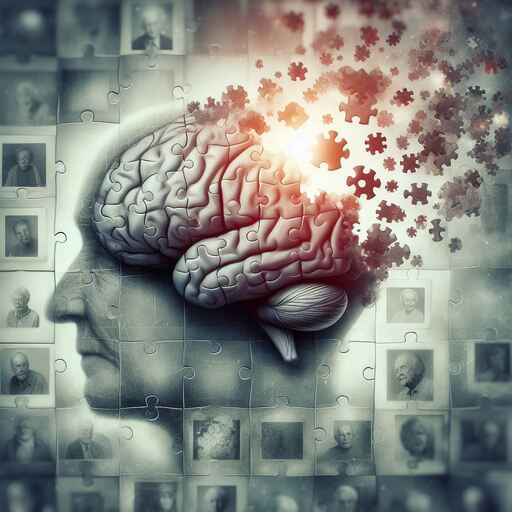Memory’s Unraveling: Understanding Alzheimer’s
Memory’s Unraveling: Understanding Alzheimer’s
Alzheimer’s disease is a progressive neurological disorder that impacts millions of individuals worldwide, causing profound changes in memory, cognition, and behavior. As one of the most common forms of dementia, Alzheimer’s poses significant challenges for patients, families, and healthcare providers. In this article, we explore the complexities of Alzheimer’s disease, shedding light on its symptoms, underlying mechanisms, risk factors, and current avenues of research aimed at improving diagnosis and treatment.
The Impact of Alzheimer’s Disease
Alzheimer’s disease deeply affects individuals diagnosed with the condition and their loved ones. The hallmark symptoms of Alzheimer’s include memory loss, difficulty with problem-solving and decision-making, confusion, disorientation, and changes in mood and behavior. These symptoms can progress over time, leading to challenges in performing daily activities and ultimately requiring significant caregiving support.
Understanding the Underlying Mechanisms
Alzheimer’s disease is characterized by specific changes in the brain, including the accumulation of amyloid plaques and tau protein tangles. These abnormal structures disrupt communication between neurons and lead to the gradual death of brain cells, particularly in regions responsible for memory and cognitive function. The exact causes of Alzheimer’s are still not fully understood, but genetics, age, and environmental factors likely play roles.
Memory’s Unraveling: Understanding Alzheimer’s
Risk Factors for Alzheimer’s
While age is the most significant risk factor for Alzheimer’s disease, other factors can also influence susceptibility. Family history of Alzheimer’s, certain genetic mutations (e.g., APOE ε4), cardiovascular risk factors (e.g., hypertension, diabetes), head injuries, and lifestyle factors such as diet, exercise, and social engagement may contribute to the development of the disease. Understanding these risk factors can inform preventive strategies and early interventions.
Challenges in Diagnosis and Treatment
Diagnosing Alzheimer’s disease can be challenging, particularly in its early stages when symptoms may be subtle. Diagnostic tools such as cognitive assessments, brain imaging (e.g., MRI, PET scans), and biomarker tests (e.g., cerebrospinal fluid analysis) can aid in early detection. Currently, available treatments for Alzheimer’s focus on managing symptoms and slowing disease progression, but there is ongoing research to identify disease-modifying therapies.
Emerging Research and Hope for the Future
Research into Alzheimer’s disease is advancing rapidly, with efforts focused on unraveling its complex mechanisms and developing targeted treatments. Areas of exploration include immunotherapy to clear amyloid plaques, anti-tau therapies, lifestyle interventions to promote brain health, and precision medicine approaches based on genetic profiles. Clinical trials are underway to evaluate novel therapies aimed at preserving cognitive function and improving quality of life for patients.
Memory’s Unraveling: Understanding Alzheimer’s
Supporting Individuals and Families
Living with Alzheimer’s disease requires comprehensive support and compassionate care. Caregivers play a crucial role in providing physical, emotional, and practical assistance to individuals with Alzheimer’s, often facing significant stress and burnout. Community resources, support groups, and education about Alzheimer’s management are essential for empowering caregivers and families affected by the disease.
Raising Awareness and Advocacy
Raising awareness about Alzheimer’s disease is crucial for reducing stigma, promoting early detection, and advocating for increased research funding. Advocacy efforts seek to prioritize Alzheimer’s on public health agendas, enhance access to care and support services, and promote policies that improve the quality of life for individuals living with dementia and their caregivers.
Memory’s Unraveling: Understanding Alzheimer’s
Embracing Hope and Resilience
While Alzheimer’s disease presents profound challenges, there is reason to embrace hope and resilience in the face of memory’s unraveling. Advances in research, growing awareness, and the dedication of healthcare professionals and advocates offer promising pathways towards better understanding and management of Alzheimer’s disease. Together, we can work towards a future where effective treatments and preventive strategies transform the landscape of Alzheimer’s care.
In conclusion, understanding Alzheimer’s disease is essential for supporting individuals, families, and communities affected by this widespread neurological condition. By unraveling the complexities of memory’s unraveling, we can foster compassion, promote early detection, and advance research towards a world where Alzheimer’s disease no longer robs individuals of their memories and identities. Let us continue to strive for greater awareness, advocacy, and innovation in the fight against Alzheimer’s.
Memory’s Unraveling: Understanding Alzheimer’s

